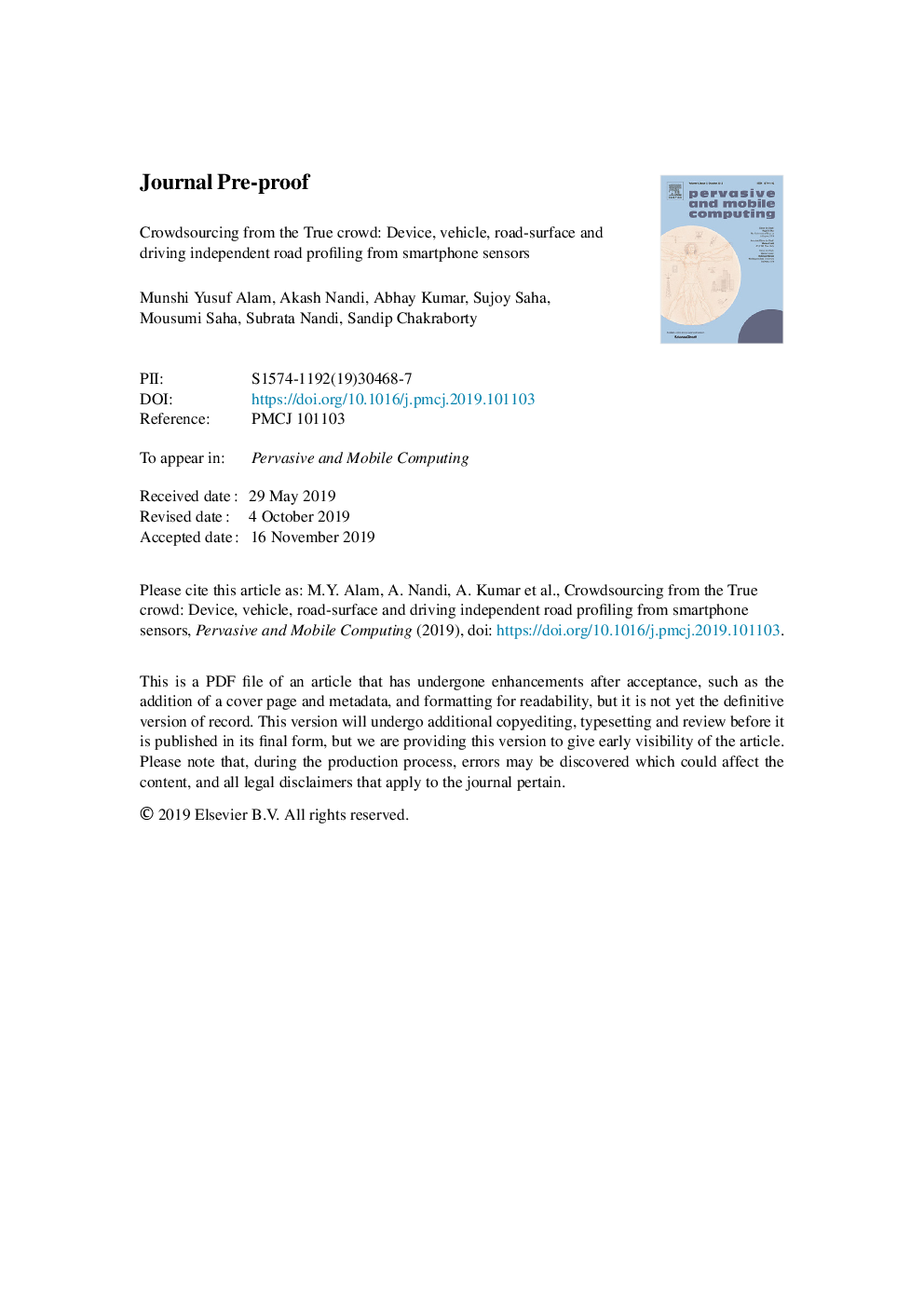| Article ID | Journal | Published Year | Pages | File Type |
|---|---|---|---|---|
| 13432752 | Pervasive and Mobile Computing | 2020 | 39 Pages |
Abstract
The aim of this work is to develop a system that detects three road events - speed-breakers, potholes and broken road patches, with improved accuracy even under varying conditions and rough roads. The proposed RoadSurP system works in two phases. The first phase runs in a smartphone and identifies the candidate signatures for road anomalies using robust auto-orientation and auto-tune thresholding algorithms to make it almost invariant of position, placement, vehicle, and smartphone type. The second phase works in a server and uses a decision tree based classifier to reduce the false-negative and false-positive instances caused due to the impact of different driving maneuvers, vehicle suspensions, etc. Finally, we apply a k-medoids clustering to geo-localize detected events from multiple trails over a map service. RoadSurP is implemented as an Android application, and tested over a 26 km road using five two-wheeler, seven three-wheeler and three four-wheeler vehicles with six different smartphone types under varying placement and position of the smartphones. After being thoroughly trained, the mean accuracy of RoadSurP is found to be 98% for speed-breakers and 92% for potholes over a smooth road (a road with occasional irregularities) and 92% for speed-breakers and 90% for potholes over the rough road. The developed application can be used as an effective crowdsourcing system for road quality monitoring.
Related Topics
Physical Sciences and Engineering
Computer Science
Computer Networks and Communications
Authors
Munshi Yusuf Alam, Akash Nandi, Abhay Kumar, Sujoy Saha, Mousumi Saha, Subrata Nandi, Sandip Chakraborty,
